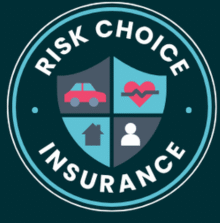
Running a security company carries a special set of hazards. Whether you run a security guard firm, offer mobile patrol services, set up cameras, or offer cybersecurity solutions, your business is in safeguarding others. But who is looking after you?
Security business insurance therefore comes in really handy. In many places, it’s not only a legal obligation; it’s a safety net that shields your staff, helps you prevent expensive financial losses, and fosters client trust.
This all-inclusive handbook will coach you through:
Coverages of security business insurance
Why is it crucial?
The several kinds of policies you can require
Typical rates
How one should select the appropriate coverage?
Typical errors to keep away from
Allow us to start now.
Describes Security Business Insurance.
Security business insurance is a body of policies designed especially to satisfy the requirements of businesses in the security sector. These companies may consist of:
Guard services for security
Private investigative companies
consultants in cybersecurity
Installations of alarms and security cameras
Event security vendors
Executive security and bodyguard protection programs
Mobile patrol operations
This type of insurance guards your company against liabilities including personal injury, property damage, negligence, and legal defense expenses.
Why Do Security Companies Need Insurance?
Front line of risk are security firms. You are employed to guard information, assets, and people; so, when something goes wrong, your company is probably going to be held liable.
Here are some actual situations where security business insurance is really vital:
Breaking up a quarrel, a security guard unintentionally hurts someone.
A client files a lawsuit against you over theft under your company’s purview.
A client suffers major losses when your surveillance camera system breaks down.
During a patrol an employee gets hurt and makes a workers’ compensation claim.
Your company would have to pay these expenses out of cash without insurance, which might be disastrous financially. Having the correct insurance will free you to concentrate on running your company while your insurer handles claims.
Various Security Business Insurance Policies
The services provided affect the insurance requirements of a security firm. The following are the main categories of insurance one should give thought:
1. General Liability Coverage
The most elementary kind of coverage is this one. It guards your company should you be liable for:
Third-party bodily injury (e.g., a client trips and falls at your business)
Third-party property damage—that is, a client’s car gets inadvertently damaged by a guard—
Personal and commercial damage (like lawsuits for defamation or libel);
2. Professional Liability Insurance—Errors and Omissions
Usually referred to as E&O insurance, this protection shields you from litigation resulting from:
Inaccuracy
Restricted performance
Not providing promised services
Errors in expert judgment
For security consultants and cybersecurity experts specifically, this is crucial.
3. Workers’ Compensation Coverage
Generally required in most states if you have staff. It covers:
Health costs
Missing pay
Reconfiguration
Death favors
In the event of job-related injuries, this guards your company as well as your workers.
4. Commercial Vehicle Coverage
Commercial auto insurance is required whether your business employs automobiles for staff transportation, patrols, or alarm system installation. It covers:
Car damage
Liability for damages or injuries caused by others
Medical reimbursements
Uninspected drivers
Five: Umbrella Coverage
One more degree of safety is offered by umbrella insurance. It starts when your general liability or auto insurance limits run out. Security firms with big client bases or high value contracts will find this helpful.
6. Cyber liability insurance
Cyber liability insurance is absolutely vital whether your company manages sensitive data, cybersecurity, or installs data collecting devices. Its covers:
Conflicts involving data
Attacks in cyberspace
Fees for lawyers
Client communication and recovery tools
7. Coverage for Property Insurance
Commercial property insurance guards against: whether you lease office space or equipment, or own it.
Flame
Misbehavior
Vulvism
Environmental calamities

To cut costs, you might also mix this with general liability under a Business Owner’s Policy (BOP).
How expensive is security business insurance?
Variations in costs depend on numerous elements:
Corporate revenue and size
Sort of services provided
Workforce count
Location:
Claim history
Coverage limits
Here is a broad summary of typical annual rates:
Type of Coverage Average Annual Cost
Broad Liability $500 to $2,500
Expert Responsibility $600—$3,000 Workers’ Compensation One thousand to five thousand plus dollars.
Commercial vehicle: $1,200 to $2,500.
Cyber responsibility 500 – 2,000 Umbrella Insurance Three hundred to one thousand dollars.
Through business insurance brokers, you may often find package packages that help to lower your overall price.
Selecting the Correct Insurance for Your Security Company
Here are some pointers to guide your insurance selection:
1. Evaluate Your Risk Factors.
Based on the offerings of your company, determine its particular dangers. For instance, a security guard company runs different risks than an installer of a surveillance system.
2. Deal with a specialist broker.
Select a broker or insurance company experienced in security industry insurance. They can provide superior direction and grasp your particular requirements.
3. Contrast Several Quotes
Choose not to use the first quotation. Look around and evaluate several companies depending on:
Coverage
Prices
Deductives
Reputation in claim handling
4. Review Coverage Restraints
Verify whether your restrictions fit the contracts you now have. Many government or business customers will want evidence of minimal liability limits.
5. Look for excluded items.
Check the fine print. Certain rules might exclude important services as cyber liability, canine units, or gun use.
Typical Mistakes to Prevent 1. Underinsurance
While choosing low coverage could save money initially, in the case of a major claim it could destroy your company.
2. Not changing your policy.
Your company’s dangers increase with its size. Make sure your insurance represents any recently acquired assets, staff members, or services.
3. Neglecting Online Risk
Cyber threats even exist for physical security firms. These days, one needs cyber insurance absolutely.
4. Selecting the Inappropriate Insurance Provider
Always investigate the insurer’s standing, particularly with relation to claim handling. Denials and delays might put you in a tough spot.
Advantages of Security Corporate Insurance
Proper insurance provides several benefits.
Legal Compliance: Many states mandate workers’ compensation or general liability for license.
Clients are more likely to work with fully insured businesses.
Focus on running your company rather than stressing lawsuits to bring about peace of mind.
One lawsuit or claim might wipe out an uninsured company.
Many government and commercial contracts call for documentation of insurance.
Last Views
Protection of your company, staff, and reputation depends on security business insurance; it is not optional. A strong insurance coverage is just as crucial as the services you offer given growing hazards and legal complexity in the modern society.
Whether you are just beginning or currently running a profitable company, routinely check your coverage, identify your risks, and collaborate with a skilled insurance specialist to make sure your firm is safe in every sense.
Require assistance beginning?
Get at least three quotes from companies focused on security sector insurance first. Before deciding, contrast coverage, cost, and customer service.
